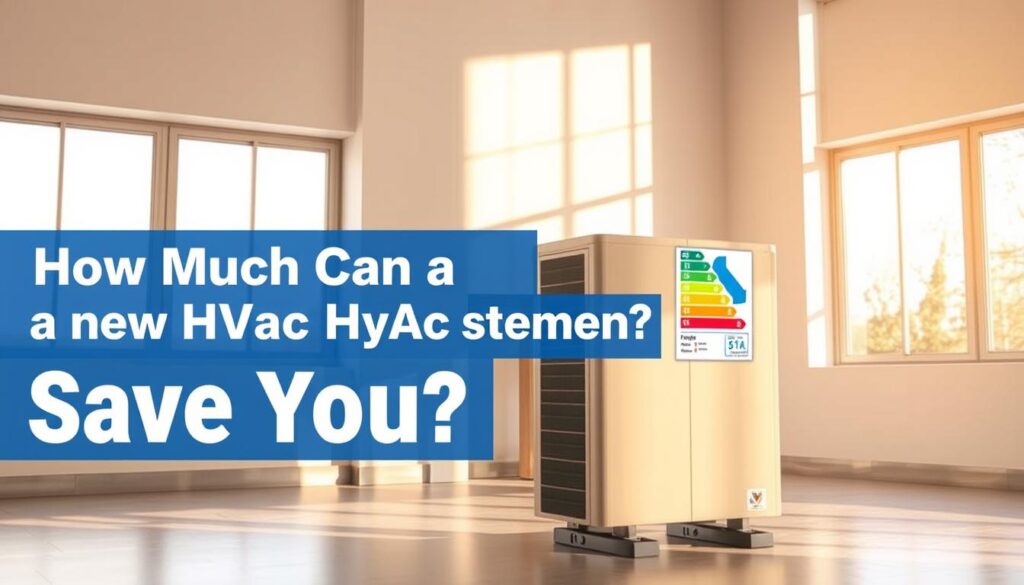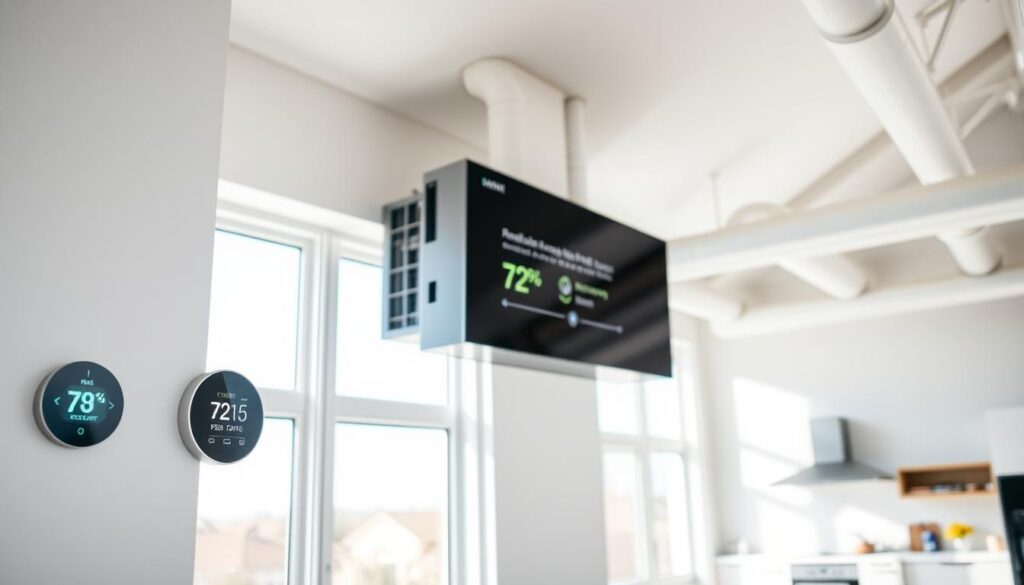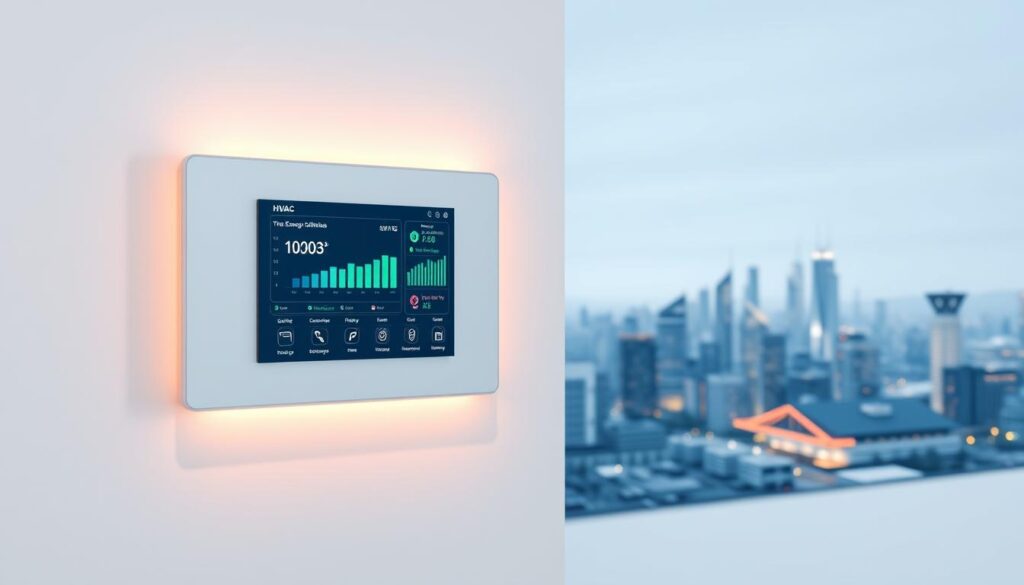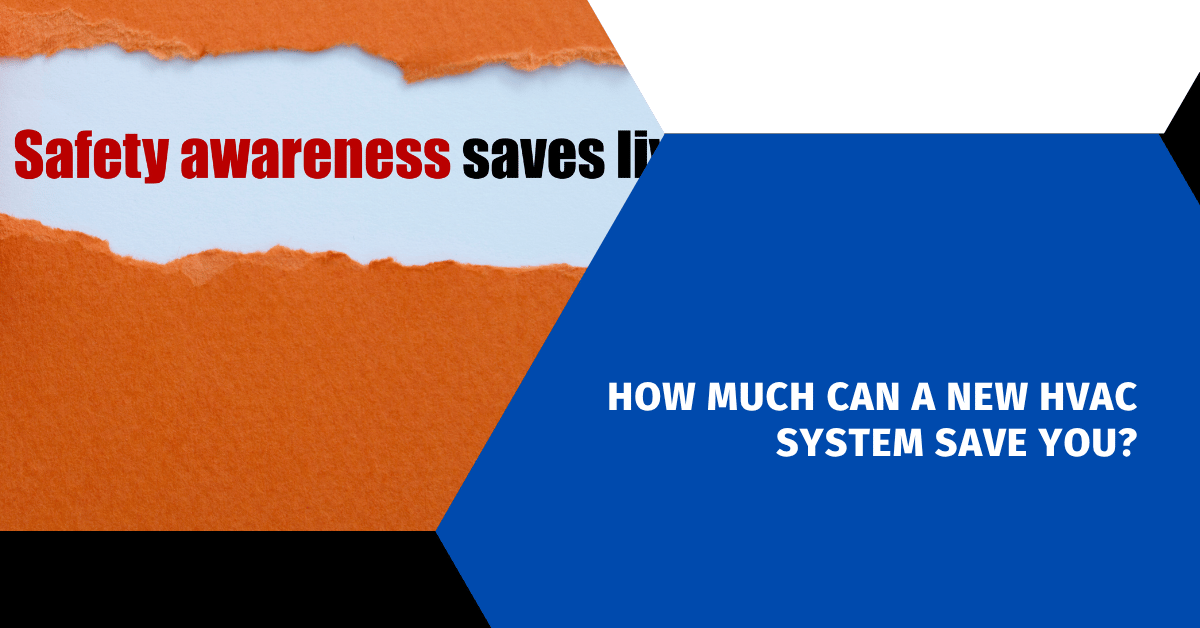Affiliate Disclosure
HVAC Guide Guys is a participant in the Amazon Services LLC Associates Program, an affiliate advertising program designed to provide a means for sites to earn advertising fees by advertising and linking to Amazon.
How Much Can a New HVAC System Save You? Are you fed up with high energy bills that empty your wallet every month? What if one simple change could cut your costs and keep your home just right?

The U.S. Department of Energy has good news for homeowners. Upgrading your HVAC system can lower your monthly bills by 20–40%. This isn’t just a dream—it’s a real way to save money.
Modern HVAC systems are more than just new gadgets. They’re smart investments that make your home use less energy. This means big savings and comfort for you.
Key Takeaways
- HVAC upgrades can reduce utility bills by up to 40%
- New systems offer improved energy efficiency
- Technology advances make modern HVAC more cost-effective
- Potential for substantial long-term savings
- Enhanced home comfort and performance
Table of Contents
Understanding HVAC System Efficiency and Cost Savings
Your HVAC system is key to home comfort and energy use. Modern systems have changed how we heat and cool, improving both performance and saving money.
Learning about HVAC advancements helps you choose wisely for your home’s heating and cooling.
What Makes Modern HVAC Systems More Efficient
Today’s HVAC systems use new technologies to cut down energy use:
- Advanced variable-speed compressors
- Smart temperature zoning capabilities
- Enhanced heat exchange mechanisms
- Improved insulation and sealing technologies
The Real Cost of Operating Outdated Systems
Old HVAC systems cost a lot. Inefficient systems use up to 50% more energy than new ones, leading to higher bills.
“Upgrading your HVAC system is not an expense, but an investment in long-term energy savings.” – Energy Efficiency Expert
SEER and AFUE Ratings Explained
Two important metrics show system efficiency:
- SEER (Seasonal Energy Efficiency Ratio): Measures cooling efficiency
- AFUE (Annual Fuel Utilization Efficiency): Shows heating system performance
Higher ratings mean less energy use and lower costs. Modern systems have SEER ratings of 15-20, beating older models.
Explore Our HVAC Shop
Looking for top-rated HVAC tools, parts, and accessories? Visit our shop and find the perfect solution for your needs.
Visit the ShopHow Much Can a New HVAC System Save
Getting a new HVAC system is more than just comfort. It’s a smart move that can cut down your energy bills. Homeowners often ask, “How much can a new HVAC system save?” The answer might amaze you.
Let’s look at a real example. Say you switch from an old 10 SEER system to a new 13 SEER one. This change can bring big financial gains:
- 23% annual energy savings
- $375 saved over five years
- $750 saved over ten years
- $1,125 saved over fifteen years
The secret to these savings is energy efficiency. Modern HVAC systems use less power but work better. Your bills will drop right away.
“Investing in a modern HVAC system is like putting money back into your pocket every month.” – Energy Efficiency Expert
Several things affect how much you can save. These include your local energy rates, home size, and how much you use it. A pro energy audit can give you a better idea of what you can save.
Explore Our HVAC Shop
Looking for top-rated HVAC tools, parts, and accessories? Visit our shop and find the perfect solution for your needs.
Visit the ShopSigns It’s Time to Replace Your HVAC System
Your HVAC system is key to home comfort. Knowing when to replace it can save you money and prevent breakdowns. Spotting warning signs early helps you make a smart choice about installation costs.
Experts say to check your HVAC system’s performance often. Older systems often show signs that it’s time for a new one.
Age-Related Performance Challenges
Most HVAC systems last 10-15 years. As they get older, you might see:
- Less cooling and heating
- Uneven temperatures in your home
- Noise when it runs
- More repairs needed
Critical Warning Signs of System Failure
Several signs point to system failure:
- Frequent refrigerant leaks
- Strange noises
- Rust or corrosion
- Uneven airflow
Financial Implications of an Aging System
An old HVAC system raises your energy bills. Old units use more electricity and work less efficiently, causing higher bills.
“Replacing an inefficient HVAC system can reduce energy costs by up to 20%.” – Energy Star
By tackling these signs early, you can plan your HVAC replacement. This saves you from unexpected costs and boosts long-term savings.
Energy Savings with Modern HVAC Technology

Modern HVAC technology has changed how we save energy at home. It brings new ways to cut down on energy use. These systems use the latest tech to lower your bills and help the planet.
Some big changes in saving energy with HVAC include:
- Variable-speed compressors that adjust cooling and heating output
- Smart thermostats with advanced learning capabilities
- Zoned heating and cooling systems
- Advanced sensor technologies
These changes can save a lot of money. For example, switching to a 15 SEER system can save up to 33% a year. Going to a 20 SEER system could cut energy use in half.
| SEER Rating | Energy Savings | Estimated Annual Cost Reduction |
|---|---|---|
| 10 SEER (Old System) | Baseline | $0 |
| 15 SEER | 33% Improvement | $330-$500 |
| 20 SEER | 50% Improvement | $500-$750 |
Choosing energy efficient HVAC systems is good for the planet and your wallet. By using the latest HVAC tech, you can make your home more comfortable and efficient.
Explore Our HVAC Shop
Looking for top-rated HVAC tools, parts, and accessories? Visit our shop and find the perfect solution for your needs.
Visit the ShopFinancial Benefits of HVAC System Upgrades
Getting a new HVAC system is more than just about being comfortable. It’s a smart move that can really help your budget. Knowing the hvac upgrade roi helps homeowners choose wisely for their heating and cooling needs.
Modern HVAC systems bring big financial wins that go beyond the initial cost. You can save a lot over time with a new system.
Monthly Utility Bill Reductions
Upgrading your HVAC can cut your monthly utility bills right away. New systems use less energy but work better. This means big savings on your energy bills.
- Reduced energy consumption
- Lower monthly utility costs
- Enhanced home comfort
Long-Term Cost Benefits
The benefits of a new HVAC system grow over time. Better efficiency means more money saved.
| AFUE Rating | Annual Savings | 5-Year Savings | 10-Year Savings |
|---|---|---|---|
| 60 AFUE | Baseline | $0 | $0 |
| 80 AFUE | 25% Reduction | $2,506 | $5,012 |
Return on Investment Timeline
Your HVAC upgrade roi gets better as energy prices go up. Most homeowners get their money back in 5-7 years through savings and lower maintenance costs.
- Initial system cost recovery: 5-7 years
- Continued savings: 10-15 years
- Potential home value increase
Investing in a modern HVAC system is more than buying equipment. It’s a smart home improvement that keeps saving you money for years.
Smart Features and Energy Management Solutions

Modern energy efficient hvac systems have changed how we enjoy our homes. They use smart technology to control your heating and cooling. This lets you manage your home’s climate and save on energy.
Smart thermostats are leading the way in saving energy. They learn your habits and adjust the temperature for you. This means your home stays comfortable while using less energy.
- Remote smartphone control of HVAC systems
- Automated temperature scheduling
- Real-time energy consumption tracking
- Integration with home automation platforms
The benefits of smart HVAC technology are clear:
- Personalized comfort thanks to smart learning
- Less energy waste
- Save 10-15% on heating and cooling costs each year
- Make your home more connected and convenient
By using these advanced systems, your home becomes smarter and more energy-efficient. It saves you money and keeps you comfortable all year round.
Explore Our HVAC Shop
Looking for top-rated HVAC tools, parts, and accessories? Visit our shop and find the perfect solution for your needs.
Visit the ShopAvailable Rebates and Tax Incentives
Upgrading your HVAC system can be costly. But, many financial incentives can help lower the costs. These programs can greatly improve your savings and return on investment.
Homeowners can find many ways to make energy-efficient HVAC upgrades more affordable. Knowing about these incentives can help you invest wisely in your home’s comfort and energy use.
Federal Tax Credits
The federal government offers big tax credits for energy-efficient home improvements. These credits can cut down your installation costs a lot:
- Up to 30% tax credit for qualifying high-efficiency HVAC systems
- Maximum credit of $2,000 for qualifying heat pumps
- Additional credits for energy-efficient home improvements
State and Local Incentives
Many states have their own financial incentives for energy-efficient upgrades. These programs differ by location but can offer big savings:
| State | Typical Rebate Range | Additional Benefits |
|---|---|---|
| California | $500 – $1,500 | Additional utility savings |
| New York | $300 – $1,000 | Green energy tax credits |
| Texas | $250 – $800 | Performance-based incentives |
Utility Company Programs
Local utility providers often have their own rebate programs for energy-efficient upgrades. These can include:
- Direct rebates for new HVAC installations
- Discounted rates for energy-efficient equipment
- Free energy audits
- Financing options with low-interest rates
By using these incentives, you can lower your HVAC system’s upfront costs. This can speed up your return on investment. Look into local programs and talk to HVAC experts to get the most savings.
Maximizing Your HVAC Investment
Protecting your HVAC investment means planning ahead and keeping up with maintenance. The Department of Energy suggests replacing your system every 10 years for the best performance. Smart homeowners know that getting the most out of their HVAC system is more than just the initial cost.
Choosing the right HVAC system is key to saving money in the long run. Here are some important strategies:
- Choose a system that fits your home’s needs
- Go for high-efficiency models with great SEER ratings
- Get regular professional maintenance
- Use smart home temperature controls
Professional installation is vital for your system’s performance. A well-installed HVAC system can cut energy use by up to 30%. Hire certified technicians who know your local climate and home’s needs.
“The best HVAC investment is one that balances upfront costs with long-term energy savings” – Energy Efficiency Experts
Preventative maintenance plans can make your system last longer and work better. Annual checks, filter changes, and tune-ups keep your system running smoothly. They also prevent expensive repairs.
Conclusion
Getting a new HVAC system is more than just controlling the temperature. It can save you up to 20% on your monthly bills. This upgrade makes your home more energy-efficient and comfortable.
Choosing a new HVAC can really help your wallet. Modern systems use less energy and improve air quality. They are designed to work best for your home, saving you money over time.
Upgrading is not just about saving money. It also boosts your home’s value and helps the environment. HVAC experts can guide you through rebates and options that fit your budget and needs.
Start making your home more efficient today. Look into HVAC upgrades, talk to local experts, and enjoy the latest in heating and cooling.

